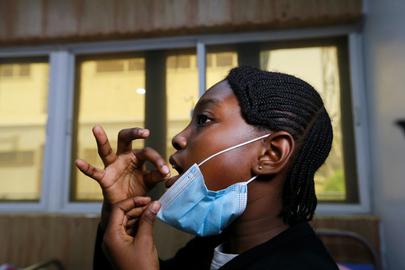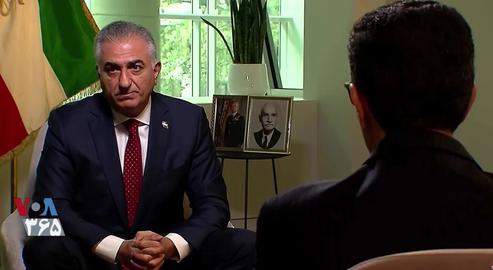This article is part of IranWire's ongoing coverage of Covid-19 disinformation in different countries, in partnership with Health Studio.
By Aminu Abubakar for Health Studio
Since coronavirus emerged in Nigeria early last year, rumours about which medications might cure the disease have spread widely. Misleading statements and disinformation from politicians, prominent businesspeople and even some medical professionals has fuelled this kind of speculation, leading many Nigerians to put false hope in unevidenced “cures.”
Covid-19 is still a new disease and, although treatments and survival rates have improved over the course of the pandemic, there is no specific cure for the disease.
Both patients and doctors in Nigeria have resorted to using an anti-malarial drug called hydroxychloroquine in an effort to treat Covid-19.
Traditionally, hydroxychloroquine is used to prevent or treat malaria, as well as certain autoimmune diseases such as lupus and rheumatoid arthritis. Some scientists initially suggested that it might be a useful drug in the fight against Covid-19. But research has shown the drug offers no clinical benefit in hospital patients with the disease.
But its use as a “home remedy” for Covid-19 has continued in Nigeria, despite the fact the country’s Centre for Disease Control (NCDC) has warned against its use outside of clinical trials of potential treatments.
Social Media Rumors Encourage Use of Unevidenced “Cures”
Panic created by the coronavirus outbreak and the lack of a definitive cure has led many people, including medical practitioners, to fall back to hydroxychloroquine to treat the disease.
Unevidenced claims by former US President Donald Trump that the hydroxychloroquine and its more toxic cousin chloroquine offered “tremendous promise” as a cure for Covid-19 led to panic-buying in Nigeria, and were even linked to two overdoses.
Despite warnings from the Nigerian government, reports suggest some doctors may have used antimalarials on Covid-19 patients outside of clinical trial settings. One prominent medical doctor even promoted the use of such drugs on social media in May, before the findings from any large trials had been released.
Officials have repeatedly advised the public not to take the drugs for Covid-19 throughout the pandemic. On May 14, for example, the Director-General of the National Agency for Food, Drug Administration and Control (NAFDAC), Professor Mojisola Adeyeye, said: “Nobody should buy chloroquine and use [it]. If you have Covid-19, go to a doctor. We have warned Nigerians, do not take chloroquine.”
In September, NCDC Director-General Dr Chikwe Ihekweazu told Vanguard: “Our case management guidelines advise that chloroquine and hydroxychloroquine are only used in the context of clinical trials.”
But despite such warnings, some members of the public have continued to take anti-malarials, with social media videos fuelling early confusion over the drugs.
In one viral video, Nigerian media mogul Raymond Dokpesi claimed he had been treated with malaria drugs at an isolation facility where he was quarantined for two weeks last May for Covid-19. He made the claim, and also suggested a false link between malaria parasites and Covid-19, in an interview with reporters outside the Abuja headquarters of his media company, AIT, which was shared to social media platforms including Instagram.
Two days later, on May 17, Dokpesi wrote a memo to AIT management asking them to stop airing his claims about Covid-19 treatment at the isolation centre.
But the damage was already done, and Dokpesi’s claims further popularised the use of hydroxychloroquine against Covid-19, in spite of a lack of clinical evidence. It also added false weight to a common but incorrect belief that Covid-19 and malaria are similar or even the same.
Although it has some similar symptoms, Covid-19 is a different disease to malaria and is not caused by malaria parasites or mosquito bites. It is caused by infection with a coronavirus called SARS-Cov-2, which is transmitted via respiratory droplets released when an infected person breathes, speaks or coughs and which linger on surfaces. Tiny droplets can also linger in the air, leading to airborne infections in areas with poor ventilation.
But many Nigerians have come to equate the two diseases. Experts have expressed concern this will cause members of the public to not only mistakenly use antimalarials as a treatment, but to eschew appropriate medical attention and even the social distancing measures needed to prevent Covid-19.
The belief became so widespread last summer that the Nigerian Centre for Disease Control (NCDC) had to issue a rebuttal, insisting that malaria and Covid-19 are different though they share similar symptoms.
Antimalarial Medications and Covid-19: What Does the Science Say?
Scientists initially held some hope that malaria drugs might help treat Covid-19 because they can reduce fever and inflammation.
A small study conducted in France involving 36 Covid-19 patients appeared to show that those who received hydroxychloroquine recovered from the disease more quickly than those in a group who did not receive the same treatment. Another small study from China appeared to show a cocktail of hydroxychloroquine and another drug called Azithromycin might effectively treat Covid-19.
But although such studies initially offered hope, the studies were too small to provide definitive conclusions. Researchers use large-scale “randomised control trials”—where neither doctors nor participants know whether they have been given the drug under investigation or a dummy—to properly assess the efficacy of new treatments. But, as The Guardian noted, the French study did not meet these criteria.
Several large-scale trials investigating the use of hydroxychloroquine as a treatment for Covid-19 have since shown it does not reduce death rates in patients hospitalised with the disease. Researchers are still investigating whether the drug could help prevent the spread of Covid-19.
Dr Mustapha Hikima, consultant radiologist and chief medical director at Abdullahi Wase Hospital in Kano, told Health Studio that Covid-19 is a novel disease with no specific cure. Instead, doctors use medication to treat its symptoms. “All the said medicines that are claimed to cure the disease are [in fact] under clinical trial,” he added.
Vaccines Offer Genuine Hope
Although there is no cure for Covid-19, several vaccines have been shown to offer highly effective protection against the disease. More than a dozen have been authorised for use by medical regulators around the globe and more than 50 further candidates are under development, according to industry body the Regulatory Affairs Professionals Society.
There are also thousands of clinical trials evaluating potential treatments and preventative measures against the disease. But while the world awaits a cure, the most effective way to fight Covid-19 is by using vaccines and taking preventive measures like mask-wearing and social distancing.
visit the accountability section
In this section of Iran Wire, you can contact the officials and launch your campaign for various problems


























comments